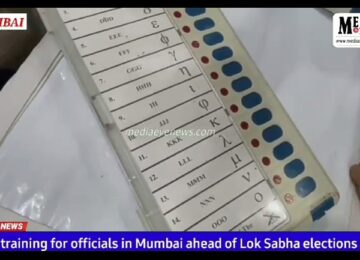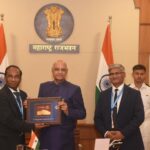Anupama Nair
To speak global English i.e., the English which is easily understood everywhere in the world, is a dream of most people. But that is easier said than done. No one can dispute the assertive position of English as a communicative language in the world today. It is enjoying the status of medium of instruction as well as compulsory subject in many parts of the world. The failure rate of the students learning English, is increasing which is deplorable. The failure in English, means the failure in the public examinations and all other walks of life.
The English language is one of the most popular languages to learn, and is perhaps the most spoken language around the world, and many people choose to learn the language simply to place them in a better position to secure work, or communicate more effectively with more people from around the globe. English might be a popular language to learn, but this doesn't necessarily mean it is a simple language to master, and there are many challenges people face while learning English and if you are aware of these challenges beforehand you stand a much greater chance of mastering the language.
The major hurdles faced by foreign speakers of English are:
- Literal translation from vernacular language to English and vice-versa.
- Grammatical and phonetical errors.
- Uses of phrases and expressions in the wrong context or place.
What foreign users do is literally translate from their native language to English, forgetting that English is spoken differently. English has part of speech which should be used in a particular place only.
How to Think English
- Start using small and simple sentences. Start your day with “good morning”, “how are you doing today?’’
- Make conversation with others.
- Get creative and use alternative words if you are struck on a word.
- Build your vocabulary by reading good books and watching movies and documentaries.
- Use English to English Dictionary
English Grammar is complex, making it so difficult to remember, master and use logically. When I was in Middle School, we learnt grammar using the famous Wren and Martin, which ensured I learnt to master the Queen’s English. Nowadays, Wren and Martin is no longer in the curriculum, and the result is there for all to see. I would be correct to say “RIP Wren and Martin and good English”. The usage of correct grammar can be tricky, especially when you are in conversation with someone and they speak at an alarmingly fast pace. Learning grammar is like learning swimming, you can learn all of the theory, rules and regulations, but you won’t be good at it unless you practice it and it starts to become like a second nature to you. Grammar is extremely important, and incorrect use of grammar can confuse the person you are speaking to and even change the meaning of what you are trying to communicate. English speakers are incredibly proud of the language and look negatively on it being used incorrectly.
These are some grammatical errors people in the Indian subcontinent use:
What are you discussing about? (what are you discussing?)
I am going to give an exam. (I am going to take/write an exam.)
I saw a dream. (I had a dream.)
I am having four brothers and three sisters. (I have 4 brothers and 3 sisters.)
Myself John Smith (I am John Smith.)
What’s your good name? (What’s your name.)
There are some expressions used in the wrong context in the Indian Subcontinent:
Expire for dead
Cousin Brother/Sister
Pass out for graduating from College
Would be for fiancé
Picture for movie
Wedding anniversary for marriage anniversary
Comprise of instead of comprise
Explain me instead of explain to me
Revert back for revert
English has one of the biggest vocabularies — more than any other language, and it can be very confusing for non-English speakers to master. Using wrong vocabulary is easily noticeable to anyone who’s first language is English.
The next hurdle is pronunciation as English words can be very difficult to pronounce as it isn't always obvious. Furthermore, depending on the first language of the English student, it can often be difficult to pronounce certain words properly, having not ever had to create that phonetic sound before.
For example, these words are pronounced as:
DENGUE (dengi)
TIER (tear)
BICYCLE (bi-si-kul)
PLUMBER (plu-muh)
WEDNESDAY (wen-sday)
TUESDAY (chooz-dei)
CAREER (kuh-riah)
TUITION (twishn)
VILLAGE (vil-idj)
PAPER (peipe)
VINEYARD (vin-yed)
YATCH (yot)
RENDEZVOUZ (rondevu)
DEBRIS (debri:)
TOUR (tua)
FAUX PAS (fau-pa)
DEBUT (debyu)
CHAOS (kaos)
When I hear English being murdered as a British friend Roger Anderson told me I think of the poor professor in the blockbuster series “Mind Your Language”. Roger believes by murdering English, the former colonies are taking their revenge on England and the Language. I sure agree with him as I feel a similar pain, when I see my beloved English being murdered every day in India and elsewhere in the world.




























